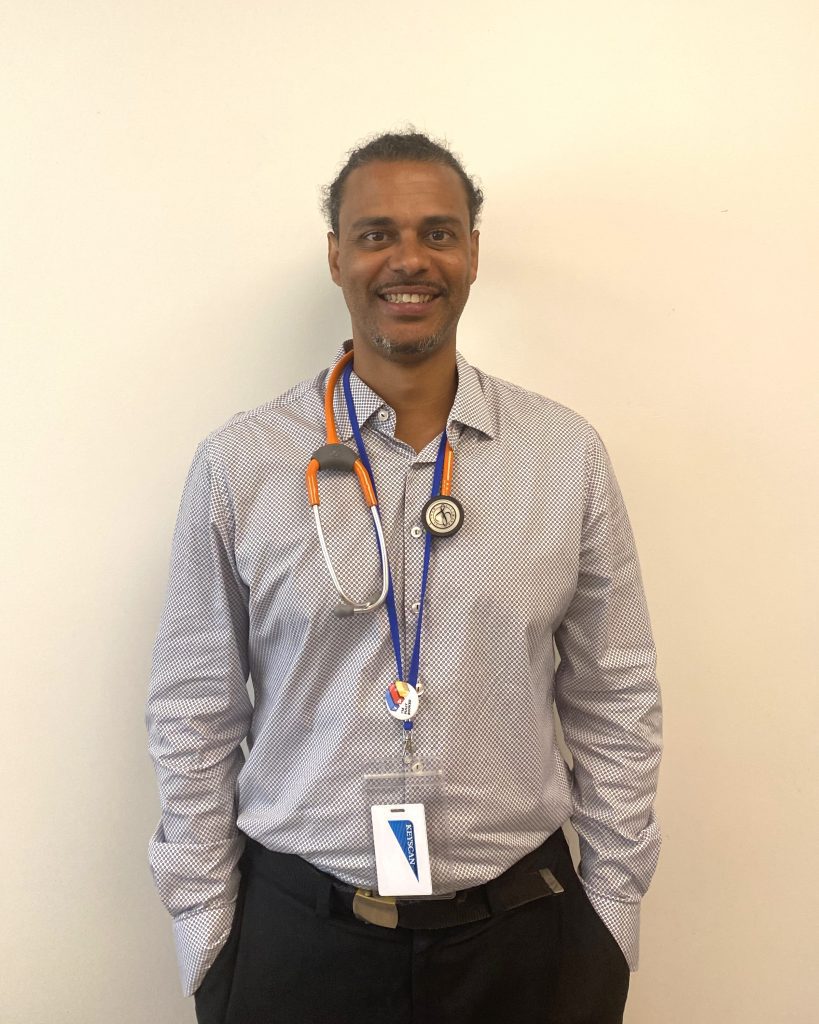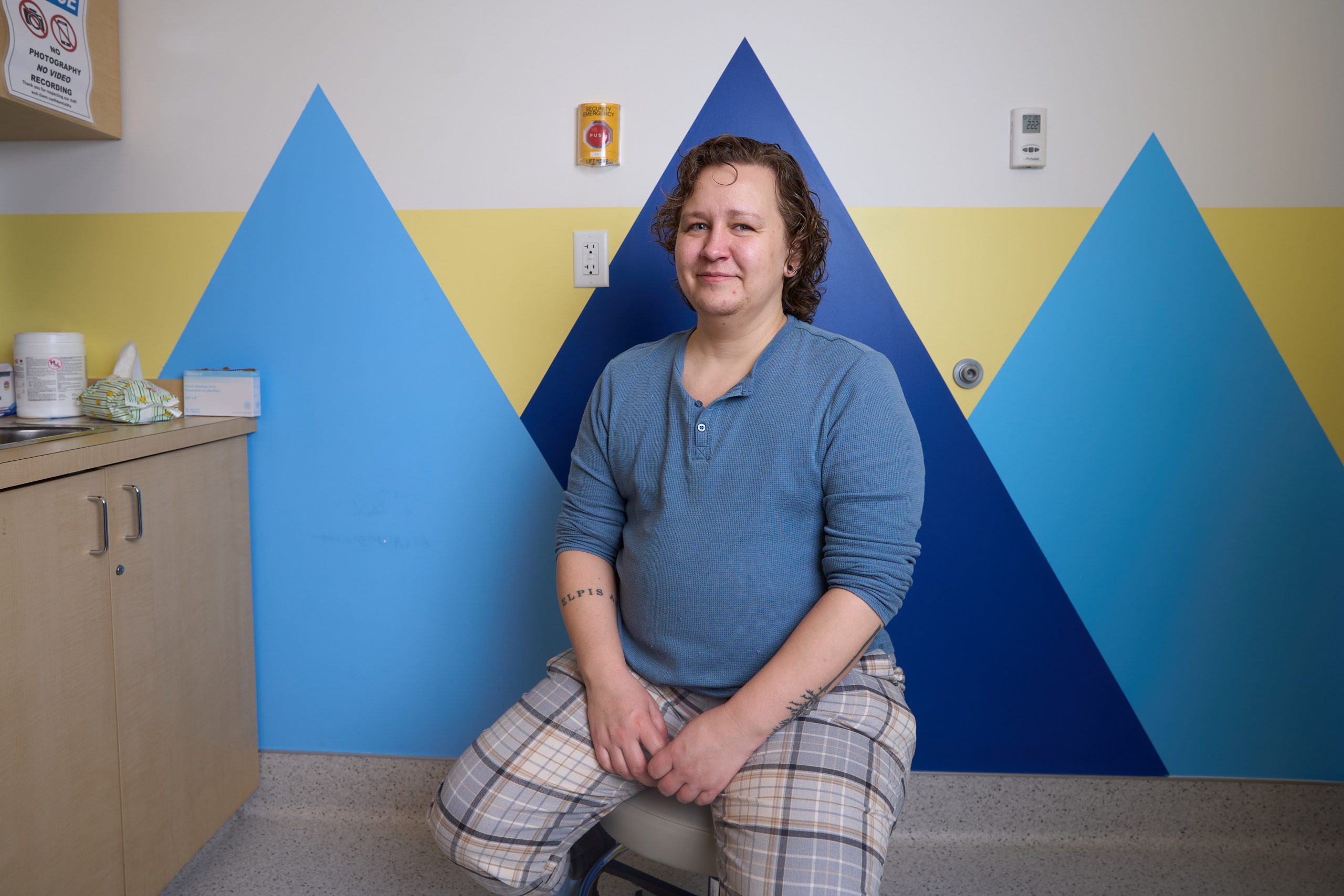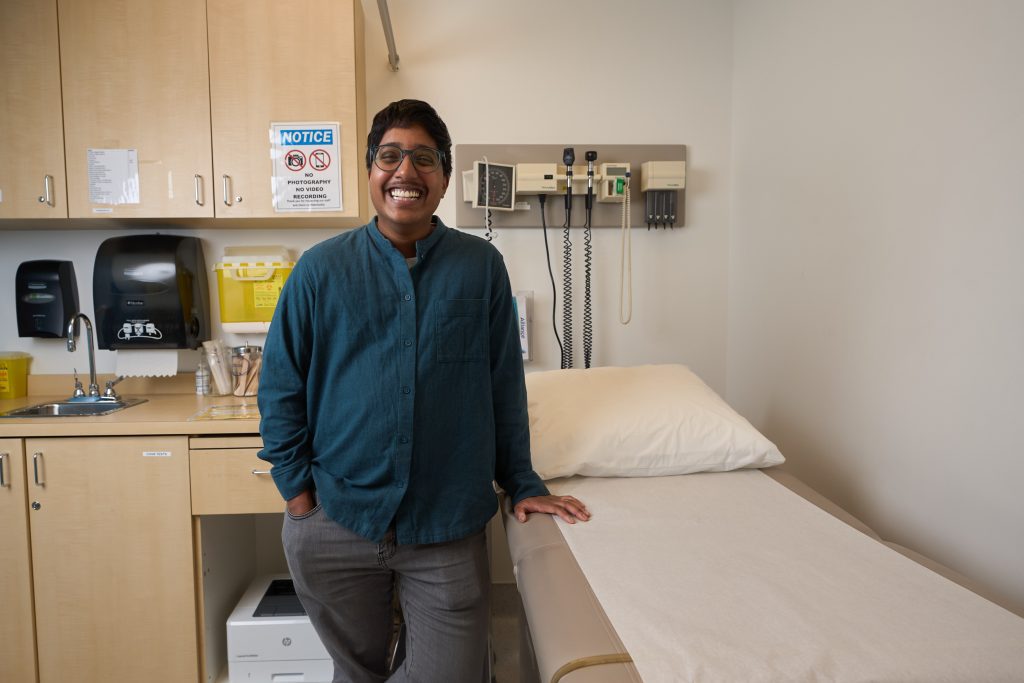Meet Clement, family physician at RISE Community Health Centre
Born and raised in Quebec City, Que., Clement Bélanger Bishinga moved to Vancouver nearly three years ago to participate in the University of British Columbia’s family practice program at St. Paul’s Hospital. After completing the program in 2024, friends and colleagues encouraged him to apply for a position at RISE Community Health Centre, which is operated by Collingwood Neighbourhood House (CNH).
In late January, Clement was hired as a temporary family physician at RISE. For the recent graduate, he said the community health centre model, which serves residents of Vancouver’s Renfrew-Collingwood neighbourhood who have difficulty accessing healthcare, also fitted his values.
Family medicine, he said, often pushes practitioners to consider what they want to bring into the medical field. For Clement, diversity and the social determinants of health were especially important to him, “so that’s what attracted me to come here,” he said.

Mentorship in the medical field
While Clement is now a practicing doctor, he considers his path untraditional. Before studying medicine, he was working in economics but soon realized that it was not for him.
Growing up, Clement said he viewed medicine as either working in international aid or doing it for prestige. Uninterested in either route, he eventually took a leap into the medicine field of his own accord. While it hasn’t always been easy navigating the field, Clement said the outcomes have been rewarding.
“I feel in medicine . . . the knowledge is sometimes kept a little bit in a certain group,” said Clement. “I think, especially in Black communities, feeling that you need tips or direction, or you need mentorship sometimes to be able to get into those programs.”
Thinking about his journey into his current profession, Clement said the one thing he wishes he had was a mentor along the way that identified as Black.
“I feel that’s a place that I would like to continue to invest myself for future generations.”
Uplifting future generations
Thinking ahead to future generations is a big theme for Clement, who struggled to connect with Black history and community in Quebec City.
“When I grew up, I think I had to search for myself for that type of information,” he said. “In some ways, I don’t think I knew about Black History Month until I was 17 or 18 because the community school that I went to was celebrating it, but it was never celebrated in my high school.”
“Sometimes, [I feel] like missing some parts of history is quite real.”
As an adult, Clement has now lived in other cities where there is a larger presence of the Black community, which has made a big difference.
Thinking about this year’s theme for Black History Month, Clement said, “The biggest part was the uplifting.”
“You know, you want to make the future greater for the next generation,” he said. “I would like my nieces and nephews to live in a world where there’s more equality or equity around Black communities.”
While Clement recognizes that everyone’s experiences are unique, “it’s more the attitude that I want to pass on,” he said. In the past, he has been with older generations who say they “had it tougher.”
“I don’t know if it’s easier [today] but there is also this attraction in some way for me in helping the younger Black generation, to work with them, because there’s potentially an innate connection with them and it makes it for a chance for some kind of shared experience to be there,” said Clement. “The reality of every group is different so sometimes when you have a bit of a connection, it just makes it interesting.”
Volunteering
Today, Clement is a member of the Black Physicians of Canada, a social network, mentorship program and advocacy group for Black physicians. Supporting other Black physicians who have similar experiences as Clement has been an important value for him. He is also a member of the Black Resident Physicians’ Association of BC.
When he lived in the United States for part of his education, Clement also tutored in a youth incarceration centre in Illinois. While not explicitly a centre for Black people, Clement said Black people were “quite overrepresented.”
“It was tutoring but the students knew a lot of stuff already,” he said. “I think it was like a game for them and for me to have someone from the outside and having these two or three hours where they’re in this very small library we ended up doing a lot of chatting.”
“I think that’s what I like the most, is to create a network,” he said. “I have those networks of like Black Physicians of Canada and Black Resident Physicians of BC but those are also more connected to my profession. I would like for it to be more broad.”
Community building and celebration
Overall, Clement said celebrations like Black History Month, which takes place annually throughout February, are a good opportunity to highlight events, create support and make connections within the Black community.
“It has a different purpose for different people,” he said. “In some way for me, this year’s Black History Month has been more about community building.”
“I think there is this strong advantage of having a Black History Month, just to celebrate each other and embrace who we are, and then there’s always motivation to learn a little bit about the history.”
For Clement, he said it’s also an opportunity for him to explore what Blackness is and what the community is.
And for those outside of the community?
“It’s really about showing up, participating and maybe even going out of your comfort zone in terms of events you could attend,” said Clement, who noted that financial contributions to Black organizations is another option for those who cannot physically show up within the community.
“Keep your ears open and your heart open to whatever kind of struggles or emotions that you know a member of the Black community might have and also embrace it with humility.”
This story was originally written to celebrate Black voices in Renfrew-Collingwood. We encourage everyone to learn about Black Canadian history throughout the year and how Black Canadians continue to shape our communities.


















